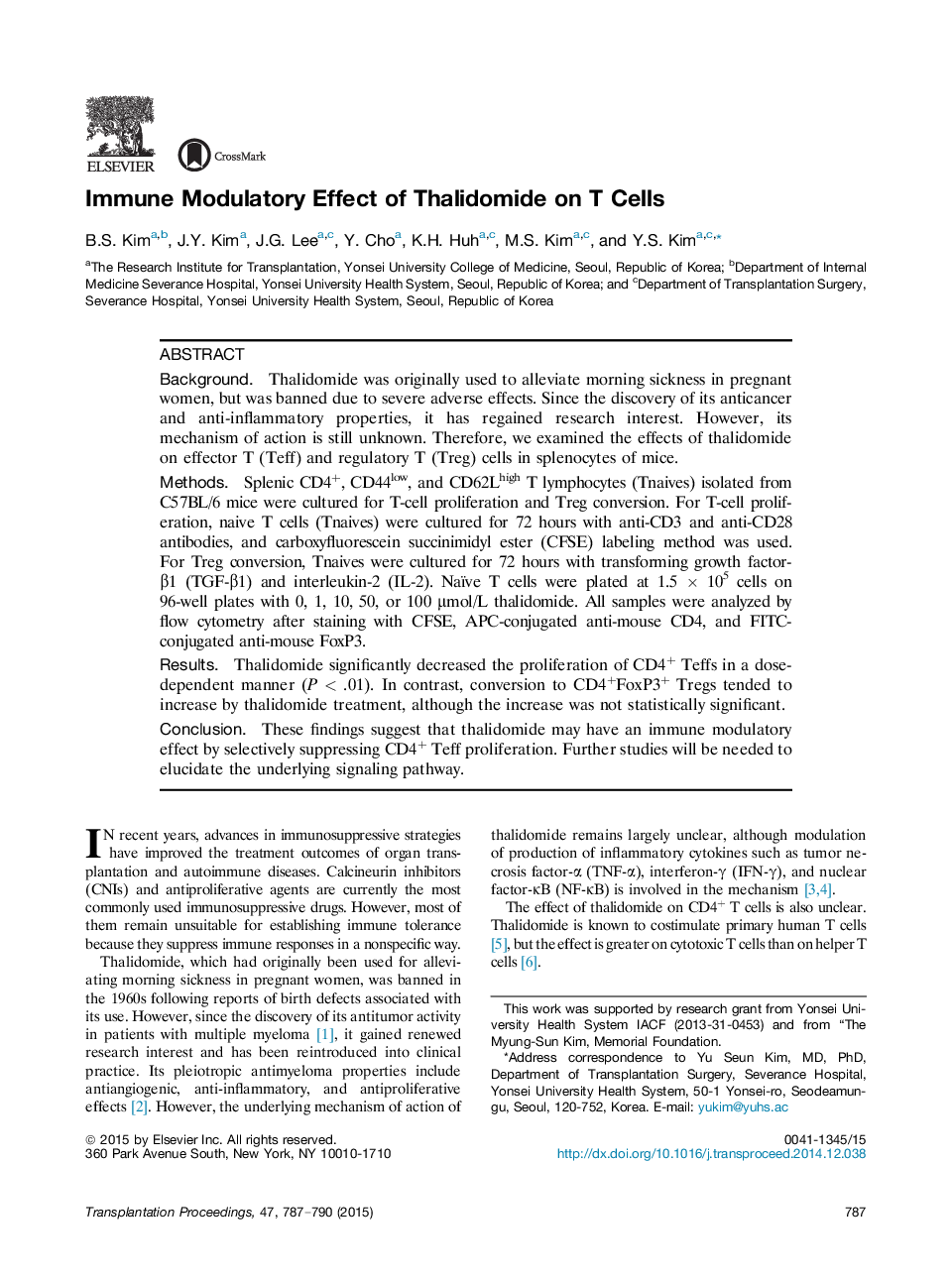| Article ID | Journal | Published Year | Pages | File Type |
|---|---|---|---|---|
| 6247896 | Transplantation Proceedings | 2015 | 4 Pages |
â¢We studied the effects of thalidomide on T cells in mouse splenocytes.â¢Thalidomide selectively suppresses effector CD4+ cell proliferation.â¢Regulatory CD4+Foxp3+ cell conversion was maintained under thalidomide treatment.
BackgroundThalidomide was originally used to alleviate morning sickness in pregnant women, but was banned due to severe adverse effects. Since the discovery of its anticancer and anti-inflammatory properties, it has regained research interest. However, its mechanism of action is still unknown. Therefore, we examined the effects of thalidomide on effector T (Teff) and regulatory T (Treg) cells in splenocytes of mice.MethodsSplenic CD4+, CD44low, and CD62Lhigh T lymphocytes (Tnaives) isolated from C57BL/6 mice were cultured for T-cell proliferation and Treg conversion. For T-cell proliferation, naive T cells (Tnaives) were cultured for 72 hours with anti-CD3 and anti-CD28 antibodies, and carboxyfluorescein succinimidyl ester (CFSE) labeling method was used. For Treg conversion, Tnaives were cultured for 72 hours with transforming growth factor-β1 (TGF-β1) and interleukin-2 (IL-2). Naïve T cells were plated at 1.5 à 105 cells on 96-well plates with 0, 1, 10, 50, or 100 μmol/L thalidomide. All samples were analyzed by flow cytometry after staining with CFSE, APC-conjugated anti-mouse CD4, and FITC-conjugated anti-mouse FoxP3.ResultsThalidomide significantly decreased the proliferation of CD4+ Teffs in a dose-dependent manner (P < .01). In contrast, conversion to CD4+FoxP3+ Tregs tended to increase by thalidomide treatment, although the increase was not statistically significant.ConclusionThese findings suggest that thalidomide may have an immune modulatory effect by selectively suppressing CD4+ Teff proliferation. Further studies will be needed to elucidate the underlying signaling pathway.
